Instagram has decided to obscure the contents they deal with politics And social issues. The new rules, already active in United States from March 25th, they entered into force in Italy on Sunday April 28th.
The same restrictions were applied to another Meta group platform, Threadsand will soon also be extended to Facebook — Meta is the multinational founded by Mark Zuckerberg that controls the main social platforms (Instagram, Facebook and Threads) and messaging (Whatsapp and Messenger).
How the social gag works – They exist on Instagram different sections through which the contents are distributed, each managed by a different algorithm. Most of these sections serve to help us discover new content from profiles we don’t yet know or haven’t linked to yet “Follow”. Then there is the Feed, which is our main page. In this section appear partly the contents published by profiles that we have chosen to follow, partly suggested contents, taken from profiles that we do not follow. From April 28th, Instagram has disabled by default, for all users, the distribution of political-social posts in the Explore and Reels sections and in the portion of suggested content in the Feed. That is, in all the sections dedicated to the discovery of new content. The posts published by the profiles we follow they will continue to appear in our Feed but less than before. This is because the ranking algorithms (those that decide in which order the posts appear on our Feed) will be influenced by reduced number of likes, a direct consequence of the small number of accounts reached. The scale of change is significant, yet the new default has been introduced without asking for user consent and without notifying them via notification. Therefore, even if users formally retain the ability to deactivate the restriction, it is unlikely that many will do so.
What does it mean for those who inform themselves – As AGCOM underlines in a report on information consumption, social networks are a passive source of information. That is, users do not actively seek information but delegate the search and choice of news to algorithms. Therefore, given the stealth with which Instagram has implemented the new rules, it is likely that the majority of users will not notice the change. If we then consider that, according to Reuters, social networks are the main source of information for 42% of Italians, in front of news sites (28%) and the printed paper (16%), Zuckerberg’s choice takes on the contours of a real earthquake for the information diet of millions of Italians.
What does it mean for those who provide information – For those who provide information like Il Fatto Quotidiano it will be much more difficult to reach new users on social media and it will be much more difficult to inform citizens about political scandals such as those of Sgarbi, Santanché, Gasparri. Instagram does not prevent the Everyday occurrence or other newspapers to publish the news, but blocks its distribution to the public. Specifically, it blocks distribution to non-followers (those who do not yet follow our page), effectively preventing us from growing. To give the reader an idea of what this entails, we are sharing Il Fatto Quotidiano’s Instagram data for the last 90 days. Between February and April 2024, the Fatto Quotidiano posts were distributed 94% to users who do not yet follow our work and who discovered us through the sections that are now closed. Of these non-followers, over half a million decided to interact with our posts, demonstrating interest in the topic. With the new rules all these non-followers will no longer be able to be reached by our news. And the same goes for all newspapers or other entities such as associations and activists who deal with politics and social issues.
A problem of definition and the usual opacity of social media – What does Meta mean by “political content”? And above all, what right does he have to decide what is political and what is not? In her announcement, the company Mark Zuckerberg it limits itself to talking about «Political contents, potentially linked to topics such as laws, elections or topics of a social nature». The director of Instagram, Adam Mosseri, has hinted that the blacklist will concern so-called hard news (politics, foreign affairs, health, economics) and “social criticism”. Pressed by the Washington Post, a Meta spokeswoman tried, with limited success, to better define what social topics consist of: «Social topics can include content that identifies a problem that affects people and is caused by action or inaction of others, which may include issues such as international relations or crime.” It therefore seems that Meta does not even have a precise idea of his own definition. Another company spokesperson admitted to CNN that “These global issues are complex and dynamic, so our definition will evolve over time.”
Can Meta really ban politics from social media? – We are used to considering social media as private multinationals that can do good and bad weather. And in fact it was like this until recently. But now things have changed.
In 2023 the Digital Services Act (DSA), the European regulation on online platforms. The DSA has created a legal framework in which the large online platforms (Meta, Google, Apple, TikTok, Microsoft and Amazon) are recognized as gatekeepers, i.e. de facto custodians of the access routes to information and online services. And therefore they are held responsible for online safety and freedom. The DSA focuses a lot on the importance of social platforms in the information ecosystem. It recognizes and establishes that these platforms «strongly influence online safety, the definition of debate and public opinion» and therefore requires them to prevent «negative, current or foreseeable effects on the exercise of fundamental rights, in particular freedom of expression and information, including freedom and pluralism of the media, enshrined in Article 11 of the Charter” and “real or foreseeable negative effects on democratic processes, civic debate and electoral processes, as well as on public safety”. Meta’s social gag on political-social content it seems to interfere with freedom of expression and informationwith the formation of public opinion, with media pluralism and with democratic processes.
Even the ways in which the gag is implemented appear to break European regulations. The DSA in fact prohibits the use of dark patterns, or “dark paths”, defined as «Practices that distort or compromise to a significant extent, intentionally or in fact, the ability of recipients of the service to make autonomous and informed choices or decisions». Furthermore, it condemns «Design choices aimed at directing the recipient towards actions that bring benefits to the online platform provider». Revealing in this sense is the post from last July by the director of Instagram, Adam Mosseriin which he explains that for Instagram the presence of political content brings more disadvantages than advantages in terms of image and monitoring and moderation efforts. Only legal action will tell us whether Instagram’s decision actually violates European regulations. Meanwhile, the suspects were gathered by the European Commission who opened proceedings against Meta to investigate several suspected violations of the DSAwhich also includes the new rules on political content.
FIND OUT HOW TO OVERRIDE THE BLOCK ON POLITICAL CONTENT





